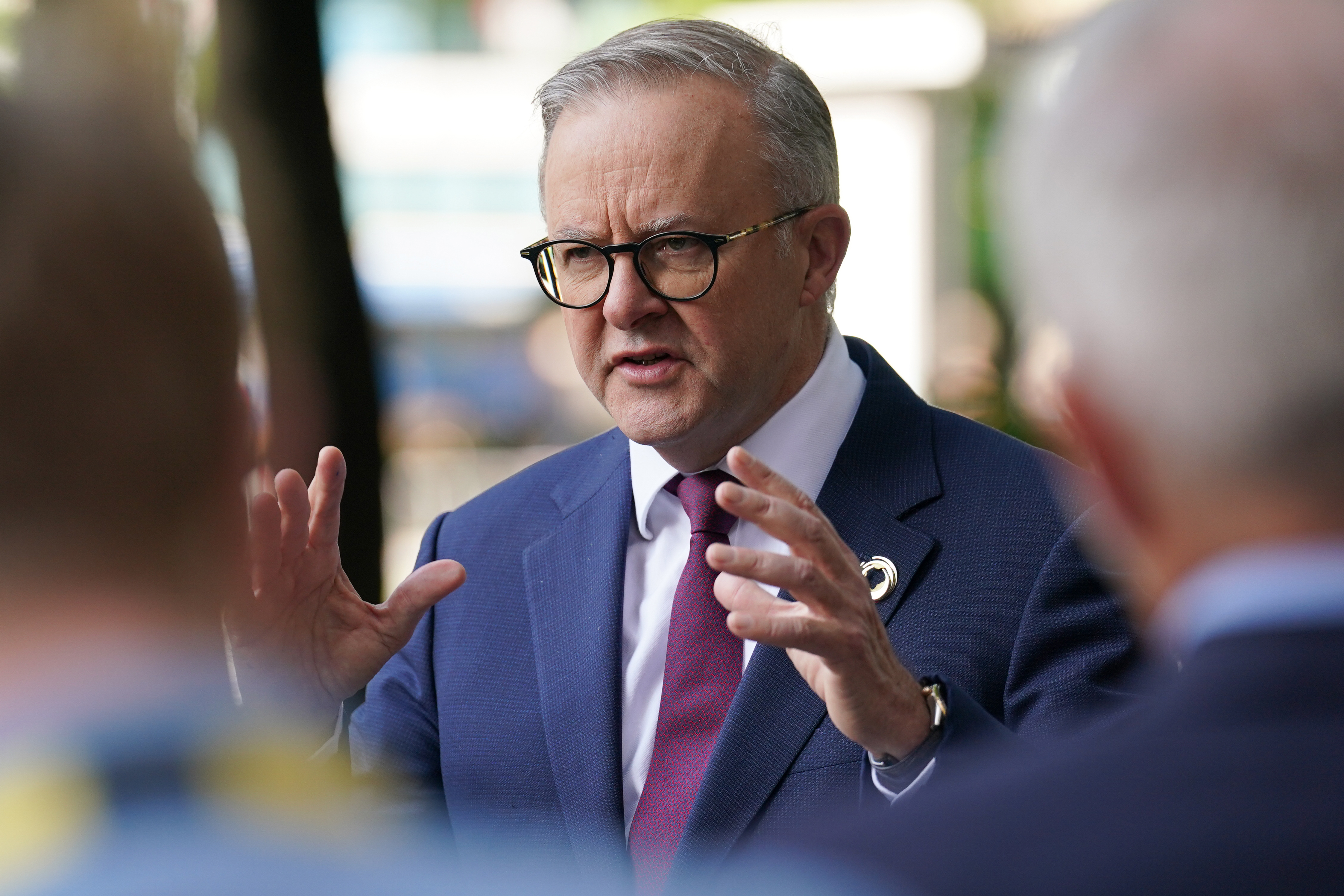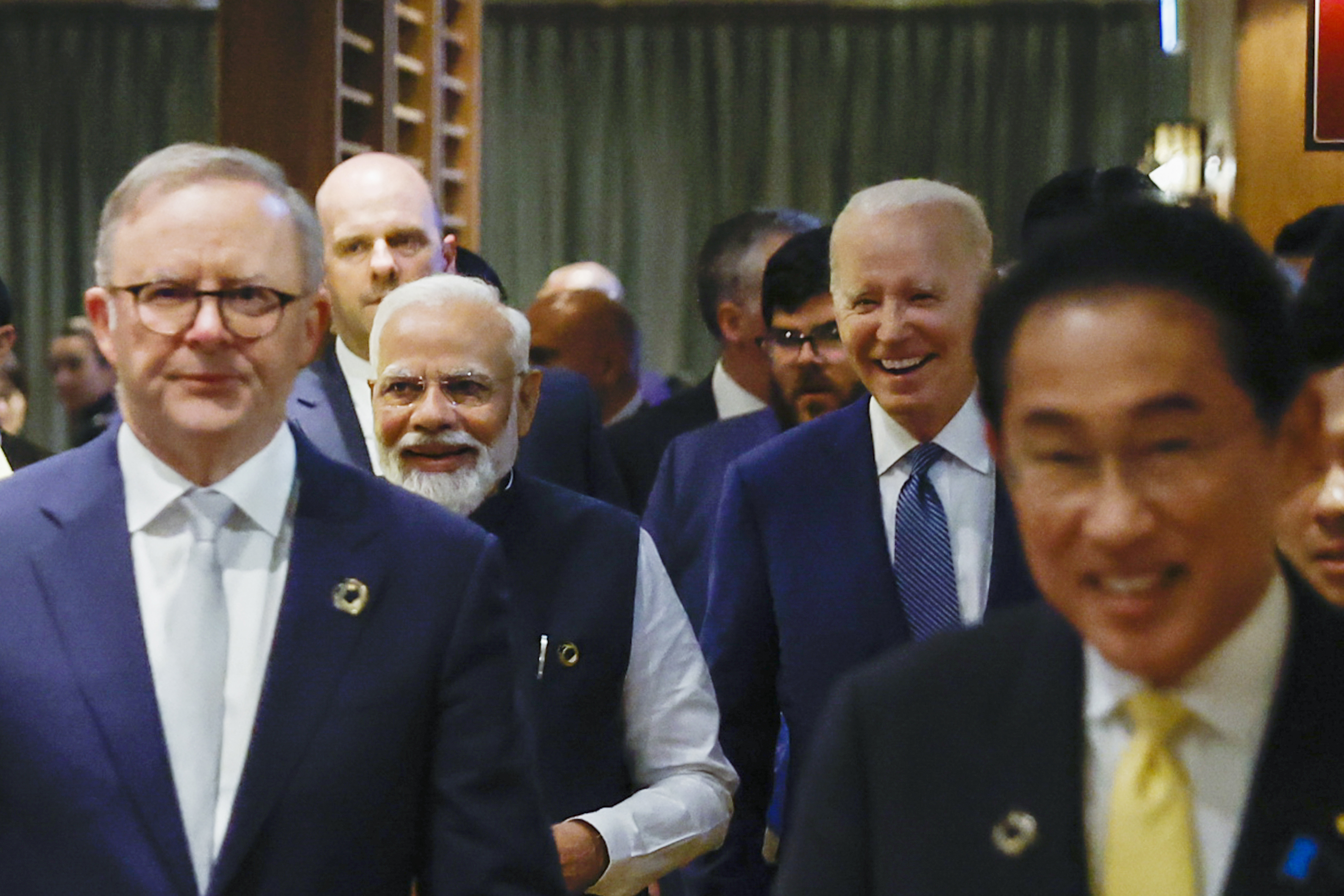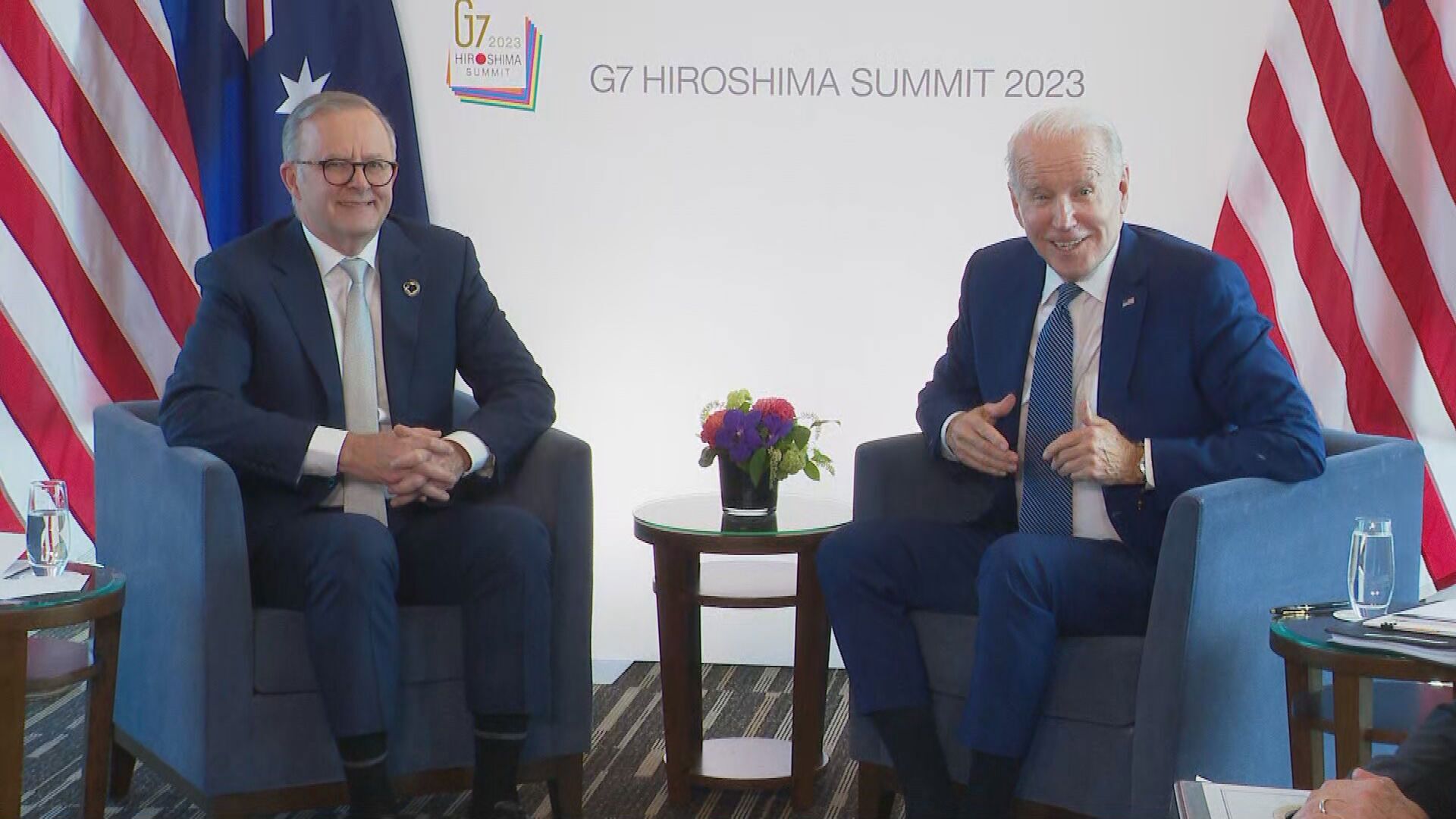Prime Minister Anthony Albanese has thrown his weight behind the efforts of G7 leaders to curb China's growing assertiveness in the Indo Pacific region.
In a statement, the G7 leaders said they had "serious concerns" about China's maritime activities in the South China and East China seas and called for a "free and open Indo Pacific".
The leaders also called out Beijing's "economic coercion" - using trade sanctions to sway other countries including Australia - and urged China to "play by international rules".
READ MORE: China lifts ban on Australian timber imports

The G7 leaders also called for a "peaceful resolution" of China's claim to Taiwan, which has remained unresolved since the communists gained power on the Chinese mainland in 1949.
Albanese, who is attending the G7 summit as a guest, said leaders' statements about China were in tandem with Australia's stance.
He said Australia was concerned about China's assertiveness in the Indo Pacific, which has included interceptions of Australia military aircraft by Chinese warships.
"We have said for some time that China's activity, and we expressed concern for ourselves as well, the chafing of one of our aircraft, the other activities that we've seen has provided concern.
"We've expressed concern in the past, we'll continue to do so. What we need to do is to make sure that we work in a way that enhances the peace, security, and stability in the region.
"We very clearly support the status quo when it comes to the Taiwan Straits and that is Australia's position – we've consistently stated that."
READ MORE: Free kindergarten 'seriously considered' by Queensland Government

'All about containing China'
The leaders of the Quad countries - Australia, the US, India and Japan - also called for a "a free and open Indo-Pacific that is inclusive and resilient" and when they held a meeting on the sidelines of the G7 summit overnight.
The leaders met after next week's planned meeting at the Sydney Opera House was cancelled.
9News chief political editor Charles Croucher said while the Quad leaders' statement did not mention China, the ambitions of the rising superpower occupied a major part of the meeting.
"The Quad calling for peaceful, prosperous, stable region, but the next sentence was free from cohesion and any intimidation.
"I don't think think you have to look too far to realise who they are taking about.
"That was the whole purpose of the Quad was to contain China, not now but into the future as well by brings these four democracies together, four powers of the Pacific and working as a unified front."
On the margins of the summit, US President Joe Biden held talks with Albanese in lieu of the now-scrapped visit to Australia.
The focus of the meeting as focused on the stability of the Indo-Pacific as China continues to expand its power in the region.
READ MORE: Damaging winds sweep across Australia's south-east

Biden apologised for skipping Australia. Albanese said he understood the circumstances.
"I would have done exactly the same thing," he told Biden, adding, "I'm very much looking forward to the state visit."
The leaders signed a compact pledging to deepen their partnership on developing the raw materials used in clean energy technologies — as they each seek to move supply away from reliance on China. They also issued a joint statement outlining new areas of cooperation in space, trade and defence.
"This is about creating an enormous opportunity for Australia and I can't underline how significant this is," Albanese said during a press conference.
"I want to thank President Biden for it."
A clean energy pact was also signed with Biden to provide "economic support, social and environmental support".
It will combine resources and enable the expansion of clean energy supply chains.
"The president will support the [US] Congress taking action to treat Australian suppliers and activity as domestic activity in the United States, for the purpose of the Defence Production Act," Albanese said.
Sign up here to receive our daily newsletters and breaking news alerts, sent straight to your inbox.
